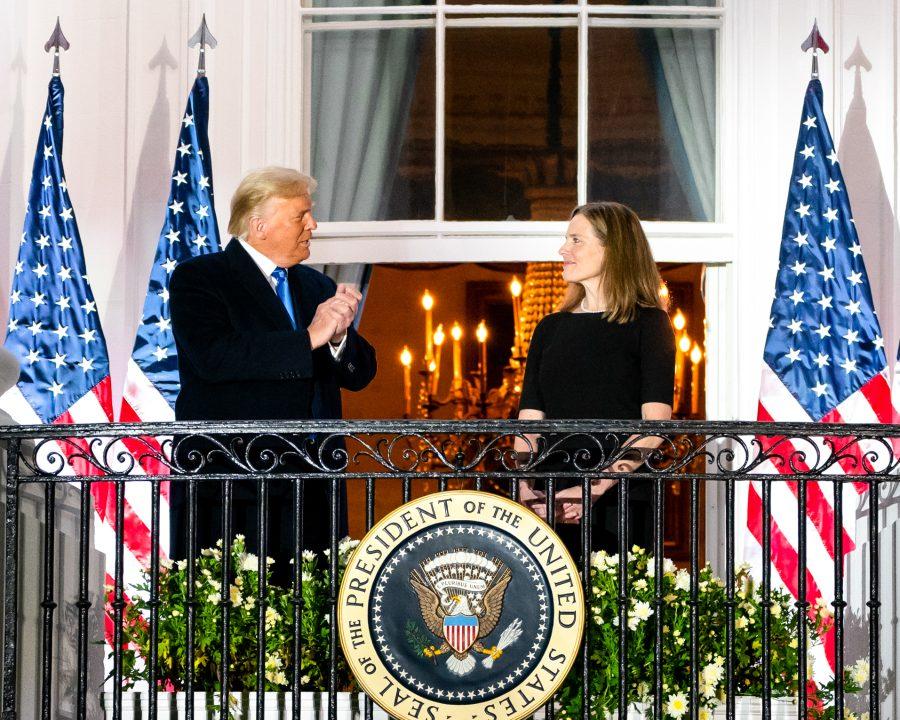On Tuesday, Nov. 10, the Affordable Care Act faced its third challenge in the Supreme Court. Despite the six to three conservative majority in the Court, it does not appear likely that the legislation will be struck down.
Two conservative Justices—Justice Brett Kavanaugh, who was appointed by President Trump in 2018, and Chief Justice John Roberts, who upheld the law in its previous 2012 case—indicated that they would uphold the legislation.
CNBC reports that after arguments were heard on Nov. 10, Justice Kavanaugh and Chief Justice Roberts “suggested that the court may cast aside a challenged provision of the law, known as the individual mandate, while leaving the rest of it standing.”
In 2012, the Court ruled that the individual mandate, which required people to have health insurance or to pay a fee, was constitutional because the fee could be considered a tax.
According to NPR, however, in 2017, the Republican-controlled Congress “zeroed out” the fee because they decided they did not need it. Since then, President Trump and congressional leaders often spoke about getting rid of the ACA.
The Affordable Care Act, also known as Obamacare, was passed in 2010. According to The Guardian, the ACA “allows people to access preventative health services such as vaccinations at no cost. It also caps insurer profits.” The healthcare coverage of at least 20 million Americans would be affected should the law be deemed unconstitutional.
The actual arguments heard by the Court began at 10 a.m. eastern time on Nov. 10, and lasted until about noon. The arguments were heard via teleconference.
Kyle Hawkins, the Texas solicitor general, and acting Justice Department Solicitor General Jeffrey Wall presented arguments to the Court that the individual mandate had become unconstitutional when its corresponding penalty fee was eliminated.
California Solicitor General Michael Mongan represented 20 states that currently support the ACA. The House of Representatives and its lawyer Donald Verrilli defended the law in Court as well. Verrilli successfully defended the law eight years ago.
Mongan presented an argument regarding the high stakes of repealing the ACA, stating that the Act “provides health insurance and other lifesaving benefits and protections to hundreds of millions of Americans.”
According to NPR and CNBC, Chief Justice Roberts jabbed at Congressional Republicans. He highlighted that it was difficult for Hawkins to argue that the Congress “intended the entire [Affordable Care] act to fall if the mandate were struck down” because that same Congress did not try to repeal the rest of the Act after zeroing out the individual mandate.
“I think, frankly, that they wanted the court to do that,” said Chief Justice Roberts. “But that’s not our job.”
The addition of Justice Amy Coney Barrett to the Supreme Court was cause for higher anticipation for the hearing of this case.
Many Democrats and Progressives feared that due to her conservative positions, and because of what CNN referred to as a “scathing law review article” against Chief Justice Roberts’ 2012 ruling regarding the ACA, the Affordable Care Act would be stricken down upon her confirmation. However, according to CNBC, Justice Barrett’s questioning did not appear to be of much note in regard to striking down the law.
President-elect Joe Biden spoke after the arguments took place on Tuesday afternoon.
“Biden said his administration would build on the ACA to expand healthcare coverage and lower costs,” reported The Guardian.
Though it appears now as though the Affordable Care Act will remain in place, the Supreme Court still has until the end of June 2021 to rule on the case.

